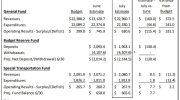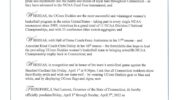Hartford, CT – On Monday, Attorney General William Tong led a bipartisan, nationwide coalition of attorneys general in two amicus briefs defending affordable drug prices before the United States Courts of Appeals for the Third Circuit and District of Columbia.
The brief defends the actions of the U.S. Department of Health and Human Services in cases filed by Sanofi SA, Novartis Pharmaceutics, United Therapeutics Corp and NovoNordisk. The pharmaceutical giants have refused to comply or unilaterally adopted unlawful restrictions on the 340B Program requiring discounted drug pricing for community health centers, clinics, and institutions serving low-income and underserved patient populations. The 340B Drug Pricing Program was adopted by Congress in 1992 and has strong bipartisan support.
The drug companies challenged violation orders issued by the U.S. Department of Health and Human Services. The bipartisan, multistate coalition argues in their amicus briefs that HHS’s actions were lawful and necessary.
“These drug manufacturers have flouted the law to unlawfully inflate their profits—ignoring the critical medical needs of vulnerable communities. Our bipartisan, nationwide coalition urged HHS to use its enforcement authority to compel drug manufacturers to comply with the law. HHS’ actions were both necessary and lawful,” said Attorney General Tong.
“For nearly two years…drug manufacturers participating in the 340B Program of the Public Services Act, 42 U.S.C. § 256b (“340B Program”), have flouted their statutory obligation to offer safety-net providers 340B-discounted prices on critical prescription drugs. These drug manufacturers have either limited 340B covered entities to using a single retail community pharmacy (contract pharmacy), or conditioned the use of multiple contract pharmacies on intrusive audits of healthcare providers’ confidential, proprietary claims data. Drug manufacturers allege that imposing conditions that restrict the use of contract pharmacies is appropriate because the term “pharmacy” is not in the text of the 340B statute and that such conditions are necessary to prevent drug diversion and duplicate reimbursement claims. But permitting manufacturers to unilaterally change the 340B Program is in direct contravention of the statute and policies long pursued by Congress and advanced by the States,” the states argue.
The bipartisan coalition of attorneys general previously urged to HHS to hold drug makers accountable for their unlawful actions imperiling access to affordable prescriptions for low-income patients. Attorney General Tong also wrote drug makers directly urging them to comply with the 340B program.
The amicus brief was led by Attorney General Tong and signed by the attorneys general Arkansas, Connecticut, Colorado, District of Columbia, Delaware, Illinois, Hawaii, Kansas, Louisiana, Maine, Maryland, Massachusetts, Michigan, Mississippi, Minnesota, Nebraska, Nevada, New Jersey, New Mexico, North Carolina, Oregon, Pennsylvania, Rhode Island, Utah and Vermont.
Assistant Attorney General Lynn Wittenbrink and Deputy Solicitor General Michael Skold assisted the Attorney General in this matter.
















